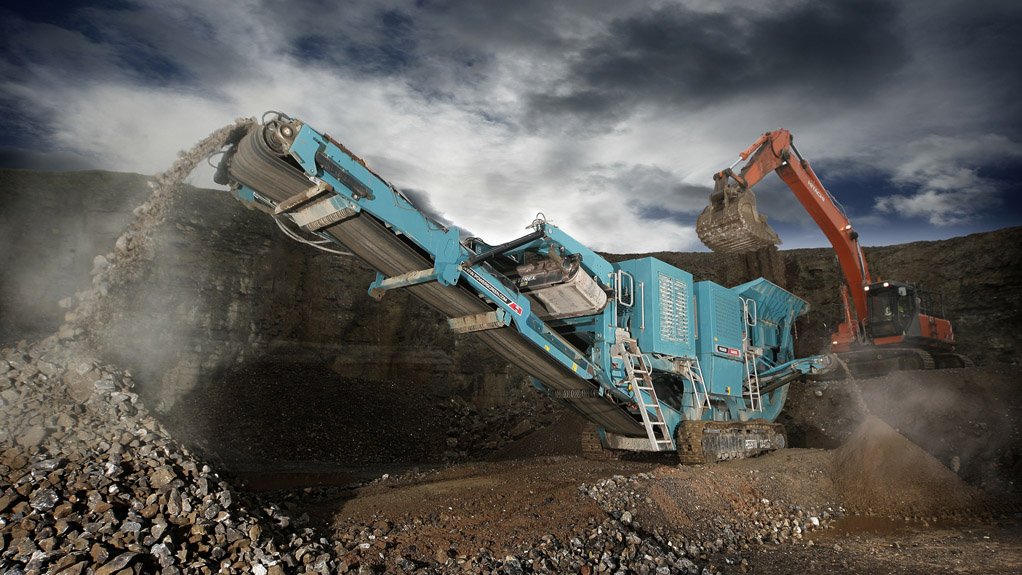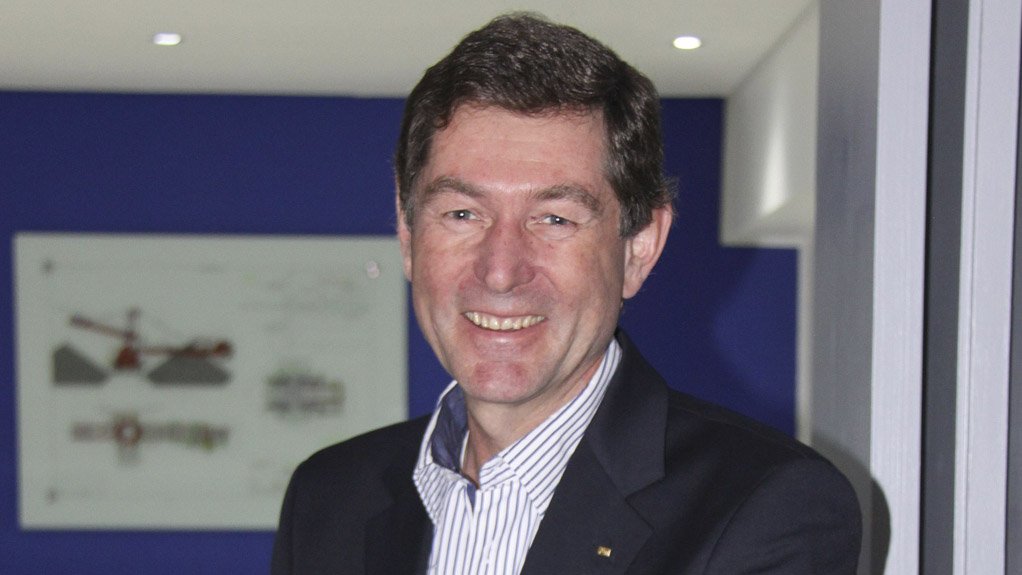Economic growth in Africa is ensuring a steady demand for infrastructure development and by tailoring its business model to access this demand, engineering services provider ELB Group has enhanced its activities on the continent and announced a return to profitability.
ELB Group CEO Stephen Meijers explains that, historically, the group’s business model has been focused exclusively on technology know-how and product relationships with reputable partners, predominately in the minerals and metals market.
“History has proven that this market goes through fairly large cyclical swings and, as a result of the protracted period of depressed commodity prices, the business took the decision to diversify into alternative markets, including food and beverage, and small power plants, moving away from relying only on the minerals and metals market and government infrastructure projects.”
The group has, thus, diversified and extended its offering through two new partnerships – a strategy that Meijers says has proven that the group can survive “in exceptionally tough market conditions”.
Like many companies globally, in the 2015/16 financial year, the group experienced significant margin pressures and foreign exchange-related losses, and was exposed to the significant costs associated with the closing out of certain projects and the delay in the award of new contracts.
“Our business in the previous financial year was largely driven by two factors – low global commodity prices and the excess stock of equipment in the market – which impacted on ELB’s equipment division. We also had a close-out of two legacy projects where management decided to absorb the losses of these projects and move forward without any liability, in line with its focus on the current and future state of the business.”
Despite the added pressures in Africa of political uncertainty and volatile currencies, through the strategic sizing and positioning of the group – together with the strengthening of some commodity prices, the award of certain projects and a firming order book – ELB has returned to profitability in the current financial year.
A key focus in this endeavour was the establishment of a partnership with engineering firm China ENFI Engineering Corporation, which enables ELB to extend its current capabilities in the minerals and metals processing sector, as well as further enhance its infrastructure and power capability for projects in Africa. A second partnership with German processing equipment developer Haver and Boecker enables ELB to augment diversification into the food and beverage industry for its existing and future clients in sub-Saharan Africa. This partnership provides a vital link in the ELB value chain, as Haver and Boecker offer specialised equipment in the transportation, storing, mixing, filling, packing, palletising and loading of bulk materials.
With these alliances in place, ELB’s activity throughout Africa has increased over the past 12 months, with technical solutions provided for projects in several countries, including Botswana, Namibia, Nigeria, Ghana, Mozambique, Kenya, Madagascar, Angola, Zimbabwe and South Africa. These projects range from water treatment and fire- fighting plants in the food and beverage industry, waste dump or disposal equipment, cement and clinker handling and train loading equipment, as well as coal shiploading equipment modification, to engineering the world’s longest single-flight overland conveyor.
With a growing need for rail, road, port, power and telecoms infrastructure across Africa, Meijers is also confident that the group’s project pipeline will, moreover, be significantly enhanced through these partnerships.
“While there is a concentration of growth across east, north-west and central Africa, growth areas are flourishing and moving all the time – and with the application of disruptive technology across the continent, I believe that, in many instances, Africa can leapfrog traditional infrastructure boundaries.”
Meijers adds that, as commodity prices increase, pressure will alleviate, and cash balances and delayed payments will no longer be such a problem in the project life cycle. “There are very exciting opportunities for Africa going forward and we are pleased to be able to be part of it.”
He highlights that ELB’s engineering services division will continue to provide total engineering solutions for customers, but with the added equipment and expertise of its high-quality partners. The group will also continue to drive a number of initiatives to position itself to achieve sustainable growth, for which returns will typically be realised only in the future, such as investigating nonintellectual engineering-type companies and applying disruptive technologies.
“These initiatives are all in line with the core expertise of the group and will enhance its ability to service its markets through horizontal or vertical diversification.”
Meijers concludes that ELB’s new business model – which values flexibility, experience and building long-term stakeholder confidence and partnerships with providers that encourage innovation – will enable the group to better protect its balance sheet in the future.
Edited by: Zandile Mavuso
Creamer Media Senior Deputy Editor: Features
EMAIL THIS ARTICLE SAVE THIS ARTICLE
ARTICLE ENQUIRY
To subscribe email subscriptions@creamermedia.co.za or click here
To advertise email advertising@creamermedia.co.za or click here















